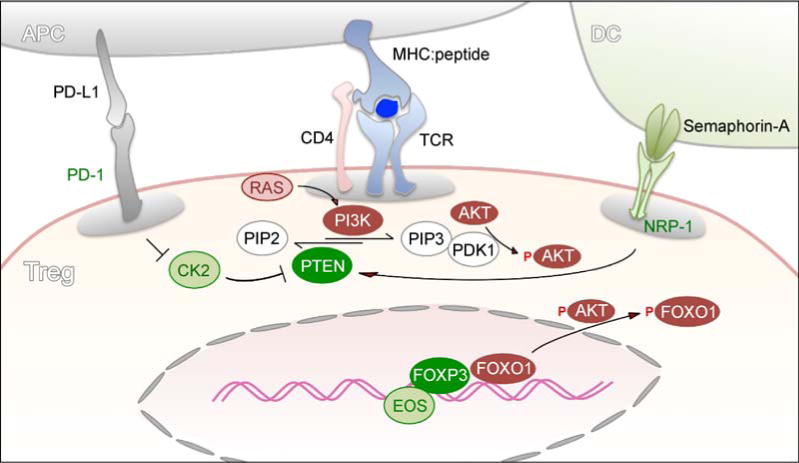Figure 1.

PTEN signaling in Treg cells. The canonical PTEN-PI3K-AKT signaling pathway plays a central role in maintaining the identity of Treg cells and their lineage stability. PTEN antagonizes PI3K-mediated generation of the second messenger, PIP3, and subsequent AKT phosphorylation. Upon TCR engagement, activated AKT phosphorylates FOXO proteins (such as FOXO1) and prevents them from entering the nucleus. Nuclear exclusion of FOXO proteins abrogates their transcriptional activity as a partner for FOXP3, leading to Treg instability. Checkpoint molecules that mediate the PD-1-CK2-PTEN pathway and the NRP1-PTEN pathway help maintain the level of PTEN in Tregs. The PD-1 suppressive signal reduces the expression of CK2, which prevents CK2-mediated PTEN degradation. NRP1 is highly expressed on natural Treg cells. Upon interaction of NRP1 with its ligand, semaphorin-A, PTEN is recruited to the immunological synapse to antagonize PI3K and promote Treg stability.
